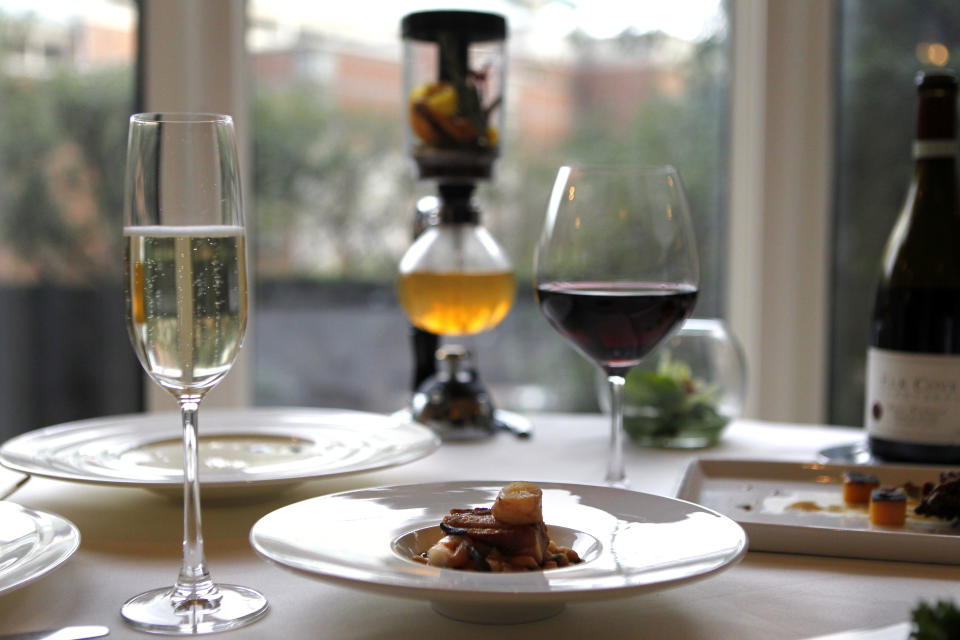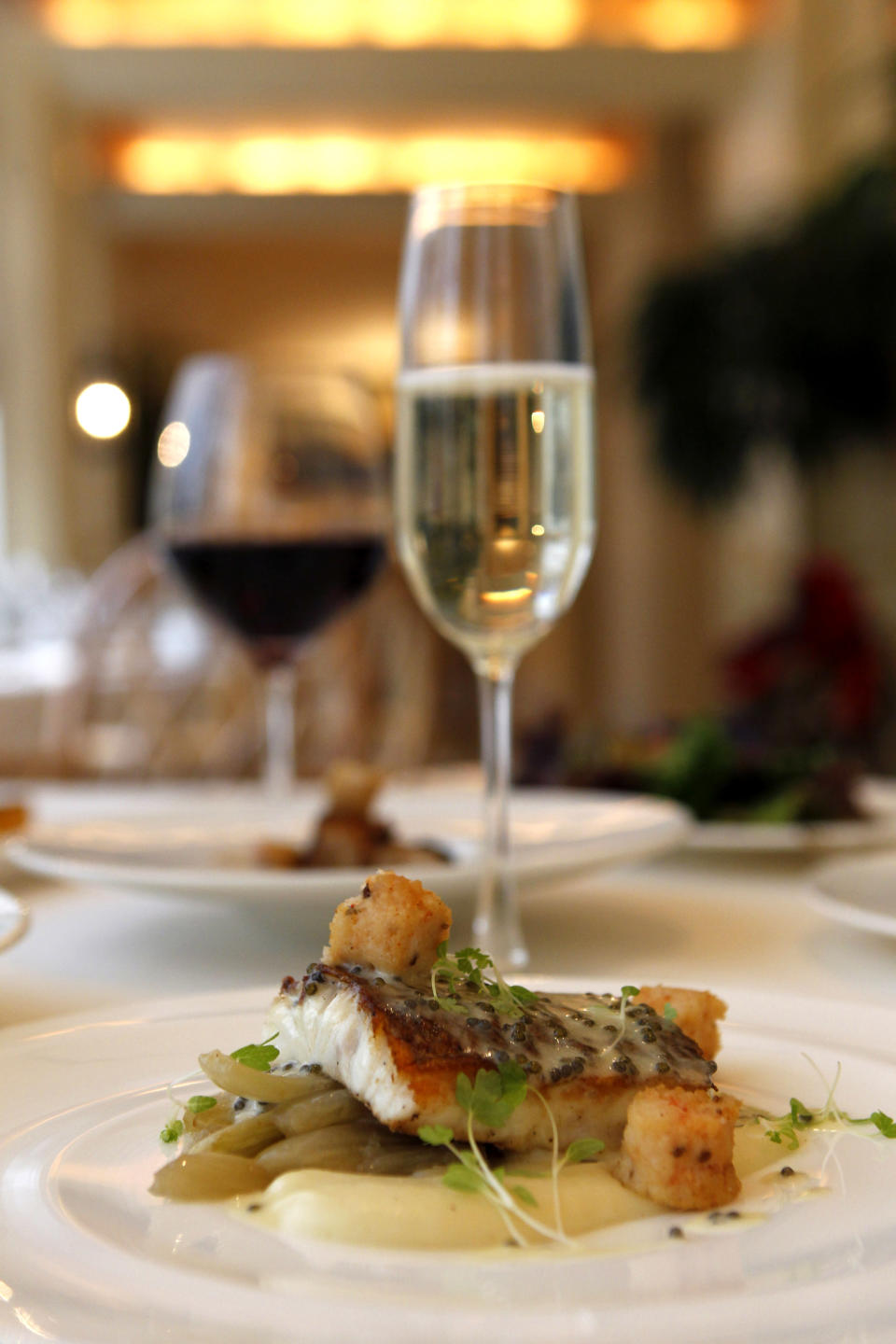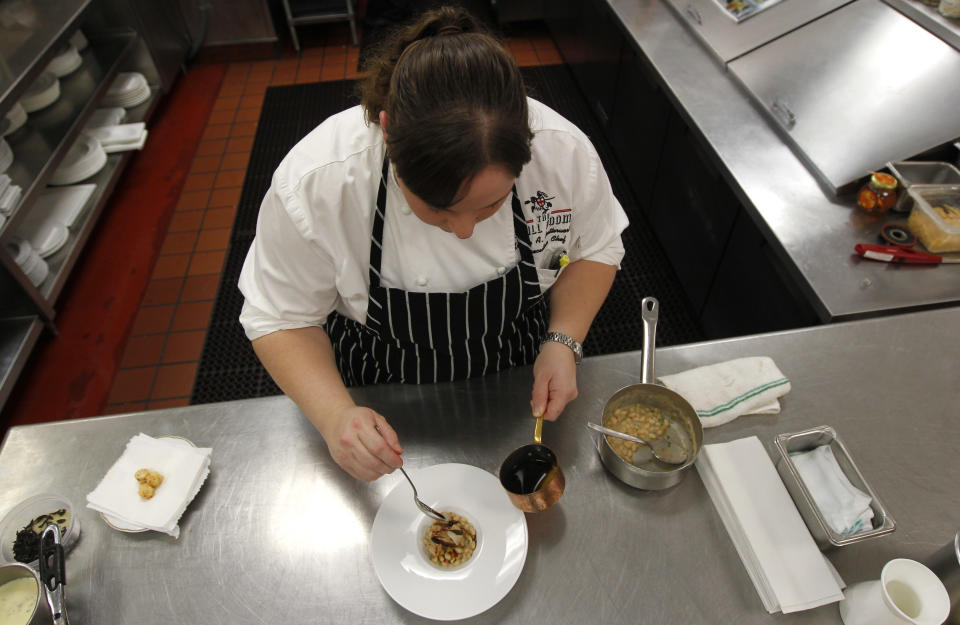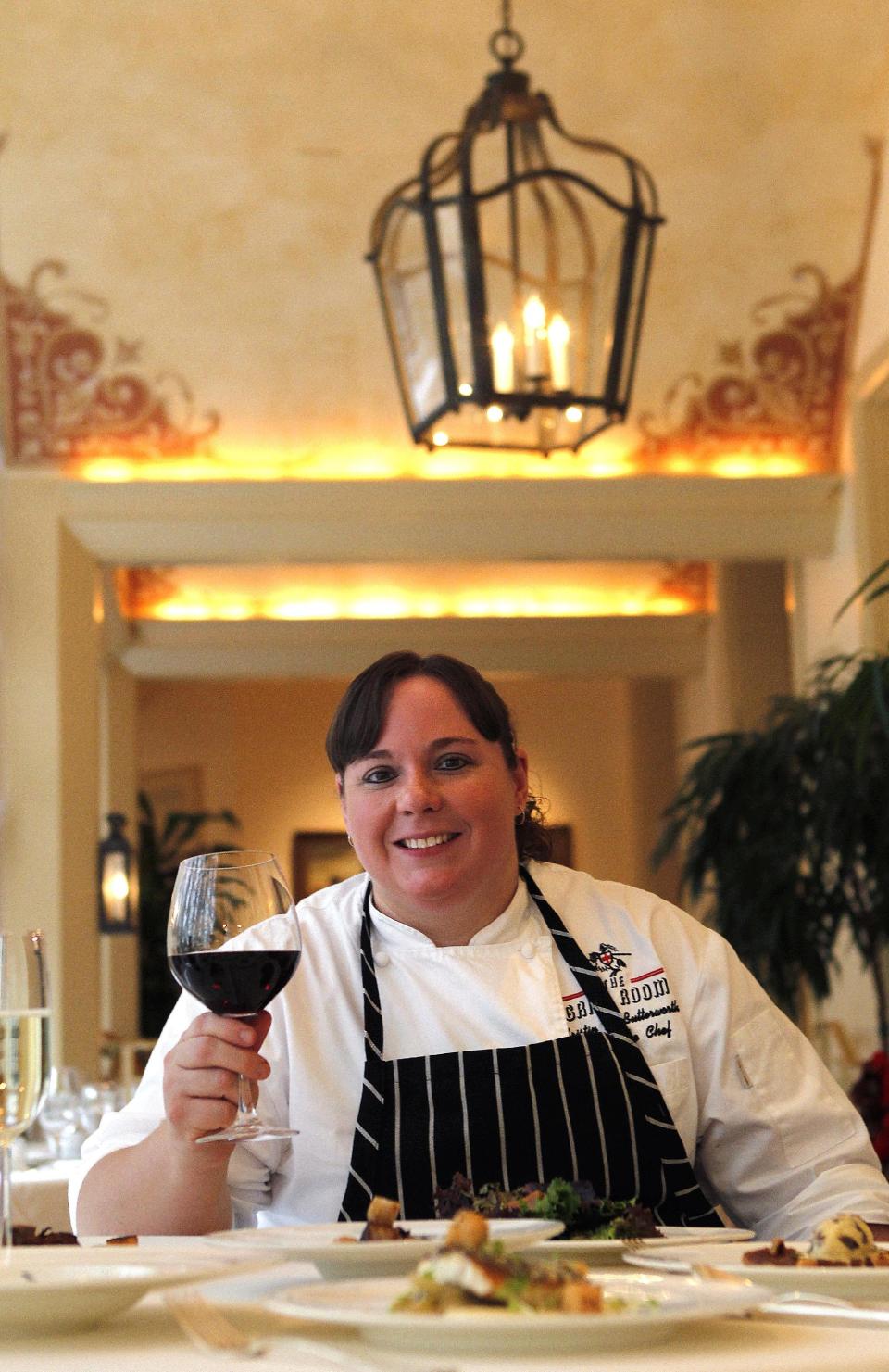New Orleans restaurants revive Creole custom
NEW ORLEANS (AP) — Christmastime for Tyson and Ginny Graham means driving nearly 300 miles south of their Columbus, Miss., home to New Orleans for shopping, holiday concerts and the highlight of their trip — indulging in a grand reveillon dinner.
The elaborate meals, which stem from the old French tradition of eating a lavish meal after midnight Mass on Christmas Eve, have become a popular draw for visitors to New Orleans during the holiday season.
In the weeks surrounding Christmas, some 50 restaurants offer four- to five-course meals of pan-roasted oysters, braised pork belly, duck confit, foie gras beignets and other holiday delicacies. The recipes have roots that date back to the beginning of the French city's nearly 300-year history.
Though some restaurants serve reveillon dinners after midnight Mass on Christmas Eve and after midnight fireworks on New Year's Eve like in the old days, most offer the special menus during regular dinner hours.
"Thank goodness," Tyson Graham, 71, said with a laugh. "After midnight is a little late for me."
Graham said since he and his wife of 45 years, Ginny, discovered the city's reveillon dinners about 15 years ago, they've been to New Orleans almost every December.
"It's been a great way for us to experience all the restaurants we've frequented over the years, but we get to have something a little different," he said.
The way it works: Restaurants offer fixed-price reveillon menus on top of their regular dinner menu starting in the weeks before Christmas and continuing through New Year's Eve. Reveillon dinner prices can range from $35 to $90 a person depending on the restaurant.
John Magill, a historian and curator at The Historic New Orleans Collection museum and research center in the French Quarter, says reveillon is French for "awakening" and was a term used by early Creoles to describe a meal that followed an evening event.
In the 1700s and 1800s, that could be as simple as beignets and cafe au lait at the French Market after a night out at the opera.
"You would eat to revive yourself after an evening event," Magill said. "It didn't always have to be a big heavy meal."
Reveillons surrounding Christmas and New Year's Eve, however, were grand affairs, he said. Families would spend days preparing a menu of comfort foods such as grits and grillades, gumbo, cakes and pastries, and the New Year's Eve spread would be even more decadent, with oysters, duck and lamb.
The Christmas reveillon would traditionally take place after a full day of fasting for communion at midnight services.
Magill talks about reveillons in the 2009 book he co-wrote titled, "Christmas in New Orleans," which also touches on the long-held tradition of holiday shopping on streetcar-lined Canal Street, caroling in the French Quarter and worshipping at St. Louis Cathedral.
Richard Stewart, a fifth-generation New Orleanian who is Catholic, says he wasn't familiar with the old tradition of reveillon until the mid-1980s, when French Quarter restaurant owners began reviving the practice as a way to get more diners during the holidays.
"In December, you were lucky if you got 10 people a night in your restaurant," said Stewart, co-owner of the Gumbo Shop in the French Quarter for 30 years before selling the establishment four years ago.
Stewart became fascinated with the fancy meals and even hosted one for his family in 2009. He said the five-course meal took weeks of research and days of preparation, with a menu that included an oyster soup and daube glace — braised short-ribs chilled to a gel form, then sliced and served with crackers or thin toasted French bread.
Today Stewart serves on a committee that oversees the city's reveillon menus to make sure the chefs are using ingredients that would have been used in the early days.
"The idea is to keep it as traditional as possible but leaving some room for creativity with the ingredients," he said.
At The Grill Room at the Windsor Court, executive chef Kristin Butterworth — a recent transplant to New Orleans from Pittsburgh — researched for months before presenting her first reveillon menu of braised pork belly with Gulf shrimp and white beans, local snapper with fennel and crawfish sausage and tenderloin with winter squash.
"When I delved into it and started to look at the history and the tradition of this meal, it was so amazing and so interesting to me," she said. "I wanted to get it right."
Even the salad took months of preparation, she said. Her winter greens are served with baby beets and squab prosciutto that Butterworth and her team cured in-house with salt, sugar, peppercorn and other spices over the past two months.
"A lot of love went into this menu," she said.
Select restaurants offer a wine-pairing option with each reveillon course and cafe brulot — a traditional New Orleans holiday beverage of strong coffee infused with strips of citrus, sugar, cloves, cinnamon and cognac or brandy.
Stewart, like other traditionalists, says the hot, thick and sweet concoction is "the perfect cap to a big holiday meal."
Some restaurants serve the beverage flaming tableside for added drama.
Though New Orleans is just about the only U.S. city that celebrates reveillon, the tradition is still alive in France, parts of Canada and other French-speaking places where it is a long dinner and celebration held on the evenings preceding Christmas Day and New Year's Day.
Reveillon is also celebrated in Brazil and Portugal on New Year's Eve. Some two million people flock to the shores of Copacabana beach in Rio de Janeiro for music and fireworks.
"It's like what we do in Times Square but on a larger scale and on the beach," said Michelle Sobhraj, spokeswoman for a New York-based marketing company that promotes Brazilian tourism.
In Brazil, revelers don outfits in the color that symbolizes their wishes for the New Year, such as red for romance and white for peace and luck. Many carry pockets full of money for continued prosperity and a bay leaf in their wallets for luck.
___
Online:
New Orleans Reveillon Dinners, http://www.neworleansonline.com/holiday/
The Historic New Orleans Collection, http://www.hnoc.org/








